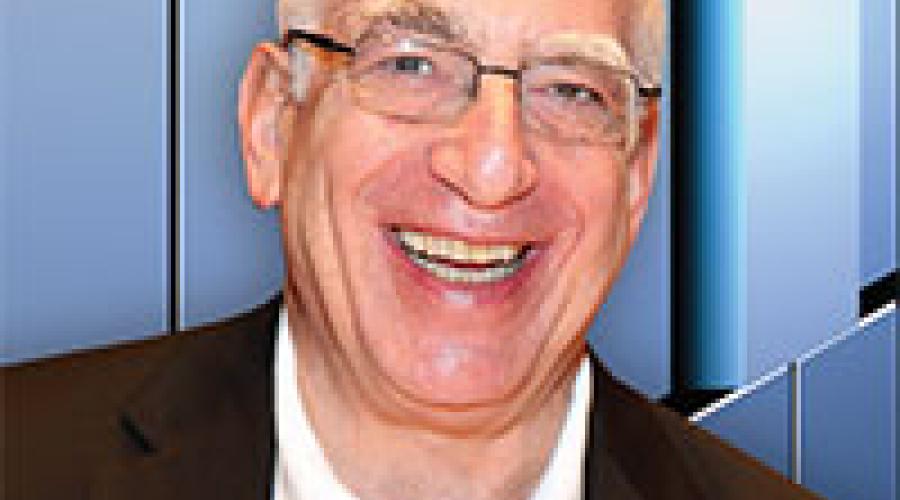
Harvard to Law to Media
Ken Kahn '69 says two key factors have helped him succeed as an attorney and an entrepreneur.
One is his ability and inclination to take calculated risks.
The other is the enduring influence of the ILR School.
Consider, for example, the financial risk he faced when contemplating the launch of Human Resource Executive, one of the magazines published by LRP Publications. Kahn founded LRP, based in West Palm Beach, Fla., in 1977.
"I saw a niche for a trade magazine aimed at senior HR executives. There was a $1 million to $2 million risk in launching this kind of magazine. And, I had no expertise running a publication that would depend on advertising."
To make it happen, Kahn purchased suburban New York City business journals "to learn the ropes" about advertising. He sold those 18 months later and invested the money in Human Resource Executive.
His day-to-day work at LRP also draws on his ILR experience, especially what he learned in dispute resolution. "This skill is very important in business. There have been a lot of acquisitions over the years, and a key focus is trying to create a win-win situation."
At ILR, Kahn says he "buckled down" after transferring from Temple University. "I got a lot of stuff out of my system in high school that people usually do in college," he says, and that helped him graduate second in his class at ILR.
A summer internship in 1968 with the New York State Mediation Board, during the historic sanitation workers' strike in New York City, stimulated his interest in public sector labor relations and labor law.
He moved on to Harvard Law School, where he studied with two prominent figures in law and education — Archibald Cox, who served as U.S. Solicitor General under President John F. Kennedy, and Derek Bok, who became Harvard’s president. Kahn worked as Bok’s research assistant before and during his leadership tenure.
"A paper I wrote senior year at ILR on collective bargaining in higher education became the basis for my third-year paper at Harvard Law. I realized how much I knew about labor law from my time at ILR."
To complete his research, Kahn traveled the country and interviewed attorneys involved in higher education. "The ILR network once again helped by opening some doors for me," he says.
The resulting paper influenced a 1980 U.S. Supreme Court ruling on National Labor Relations Board v. Yeshiva University. The Yeshiva decision had a major impact on collective bargaining in private universities.
After Harvard, he worked as an employment law attorney with a firm in Philadelphia, where his entrepreneurial spirit began to take shape.
Once again, he drew on ILR.
As part of an ILR class research assignment on the New York Public Employment Relations Board, he learned about obtaining state labor relations board decisions. Since this information was critical to his law practice, and not easily accessible, he decided to start publishing the decisions.
His firm liked the idea and hired an outside publisher. "I made a deal with the firm that if I were to ever leave, I would get all the rights to the publication."
This paid off when he came to a career crossroads and had to make a life-defining choice.
"If I stayed with the firm, I knew I'd be a partner in another year or so, or I could have left to start a boutique firm, which always intrigued me."
Because Kahn had developed good working relationships with both union and management attorneys, he says "a lot of friends were pushing me to become chairman of the Pennsylvania Labor Relations Board," a part-time policy role that he eventually landed.
"At that point, there were lots of things I could do. The publishing business was growing, and I decided I wanted to keep growing it."
Today, LRP produces industry-leading magazines, offers conferences for business and education professionals. In addition to human resource management for the private and federal sectors, the company specializes in areas that include risk management, special education and kindergarten through high school education administration.
Kahn started selling pieces of LRP five years ago that were no longer core to the business, even if those units were making money. Some might have considered that a questionable move in a tough economy; Kahn would call it smart strategy.
"When I was younger, I always wanted to have a huge company and grow it in all directions. But we took a hard look at it and realized we were trying to do too much, and we didn’t have enough good people to do everything."
"If something we did wasn't number one or two in key markets, or we determined it couldn't grow to be number one or two, or if a publication was not well-positioned to have a strong electronic presence, then we decided to no longer do it," he says.
The company's growth will align with LRP's core strengths, Kahn said. This includes expansion in the educational administration area, with some focus on disability issues, and an HR conference on benefits. The conference was held for the first time in 2012.
Kahn, whose lifelong connection to ILR includes endowing the school's deanship, says there's more to entrepreneurial success than having a great idea, taking risks and securing capital.
"Once you do make the move to start a business," he says, "the key is to do all the jobs in your company. I edited all of the publications when I started." This has helped Kahn as a manager and supervisor, he said, "since I knew from doing the work what kind of people we need to hire."
Thinking about it now, Kahn says the idea for his business — and the foundation for his future as an entrepreneur — took root at ILR. "I owe a great debt to the school."


